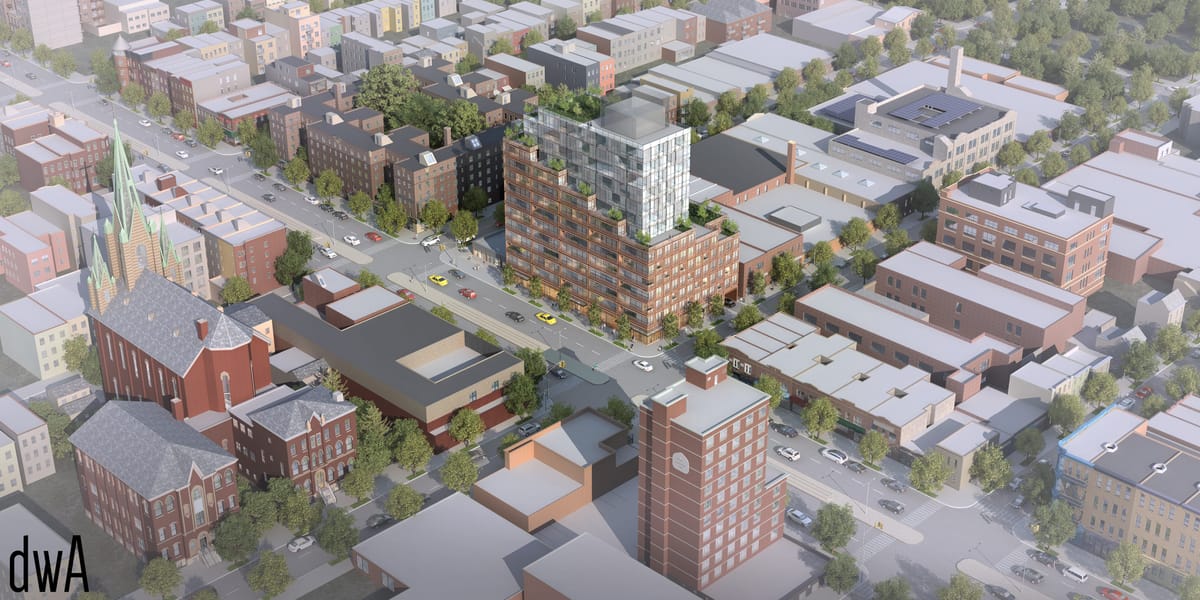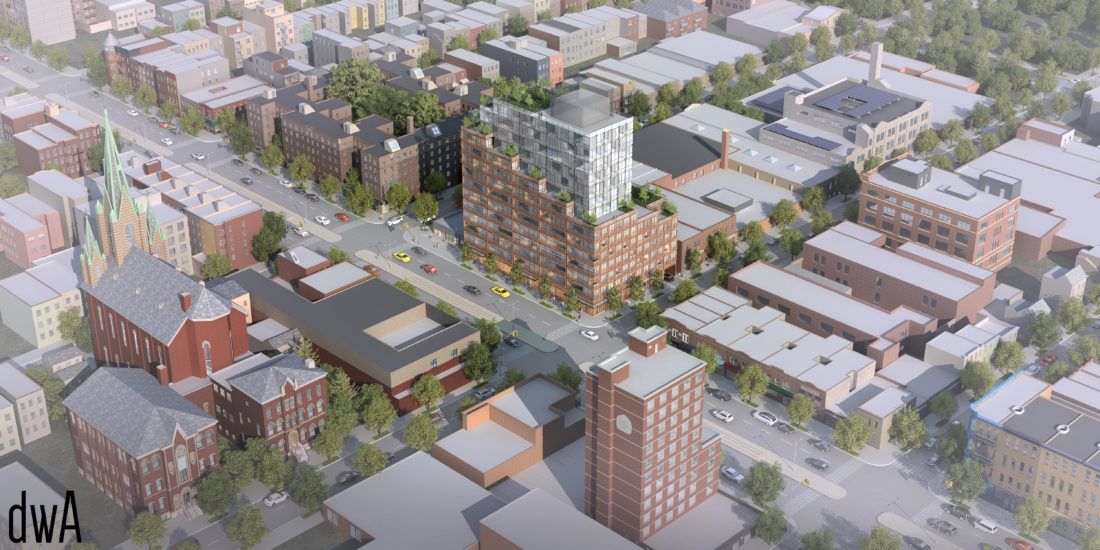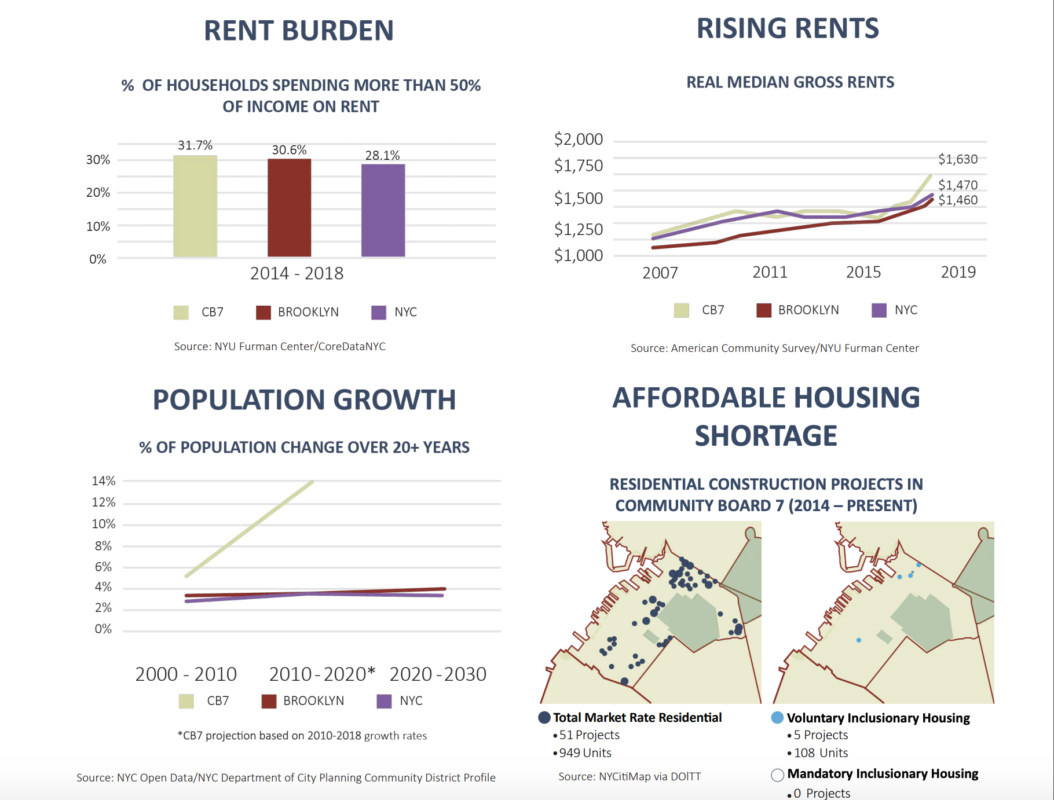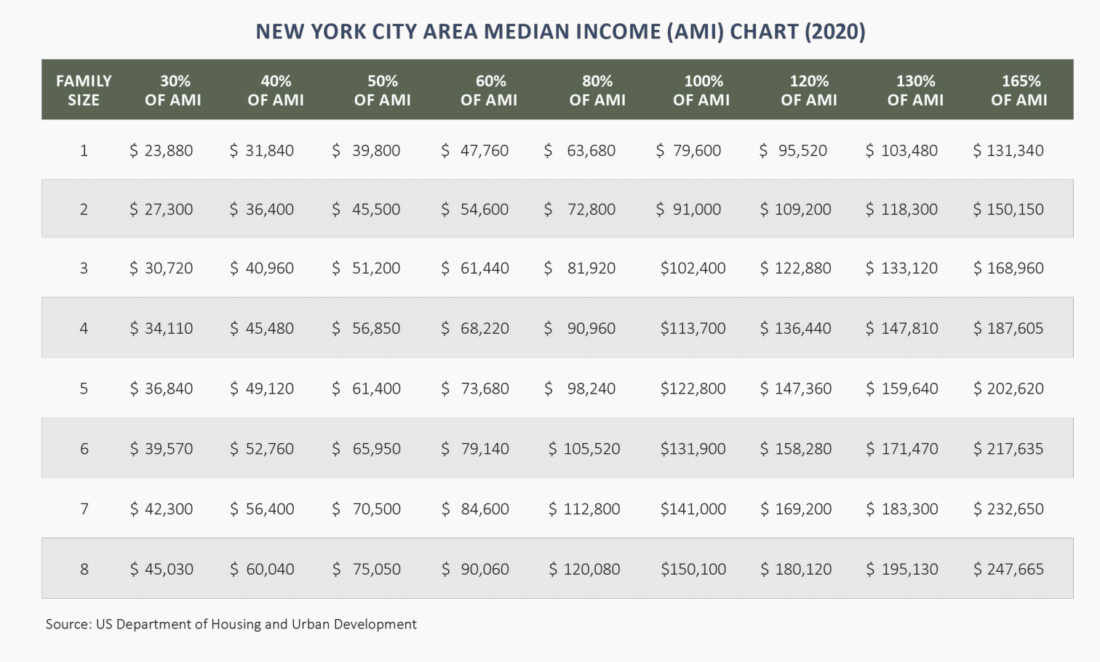Dunkin Donuts Versus Housing: Sunset Park Residents Discuss At A Public Hearing of 737 4th Avenue

Last night CB7 held its first public zoom hearing of the proposed redevelopment of 747 4th Avenue. The property, located on 4th Avenue between 24th and 25th Streets and adjacent to the 25th Street R entrance, is currently a Dunkin Donuts and a parking lot.

Totem acquired the lot for about $15 million, Tucker Reed, one of the principals, said. The company would like to build a 135 unit, 14 story rental building with ground-floor retail. The property is currently zoned M1-1D and would need rezoning to R8A/C2-4 to enable such development.
What would it look like? Imagine the kind of new buildings that currently line 4th Avenue in Park Slope – the developers hope to extend that zoning to their lot, which is just one block south of where the zoning stops.

In preliminary discussions, Totem has agreed to give MTA an easement to install an elevator to the platform and propose to offer 25% of the units under Mandatory Inclusionary Housing at 30-60% AMI – about 35 apartments. They have also agreed to not flipping the development into a shelter, as has happened in the nearby Park Slope. They promise not to block Minerva’s viewshed from Greenwood Cemetery – the development is just a block from Greenwood Cemetery.
The project has been in the works for about a year and a half, and developers say they have held over 50 meetings with various community stakeholders to ensure the community concerns were addressed before submitting the formal application. The hearing yesterday was part of the formal ULURP process to review the application. CB7 Land Use Committee will meet and render their recommendation to CB7 on Monday, ahead of CB7 general board meeting on Wednesday. Then it goes to boro pres hearing. You can see all documents filed with the City Planning here, and the EIS that contains the most relevant info is at this link.
About 55 individuals had signed up to speak, either in support or against the development. Those in support included a resident who is a member of 32BJ, a union that would represent the building staff at the development, which is expected to be about 10 individuals, as well as an assorted group – comprised of small business owners, long time and new neighbors, as well as someone who had moved recently unable to find housing to accommodate a growing family.
Those in opposition were concerned that the development was not affordable enough; there were not enough affordable apartments going to be built; and that they would not help the undocumented residents of the community secure housing. Alexa Aviles, a member of CB7 who is also running for the city council to represent the area in next year’s elections, summed it up at the Monday protest organized by Protect Sunset Park, a group of neighbors that formed to oppose the Industry City rezoning: “We will accept nothing less than 100% affordable to the AMIs of this community.” Other City Council hopefuls that spoke at the hearing – Rodrigo Camarena and Whitney Hu – were also opposed to the project.
The main concern was that bringing in more units of market-rate housing would raise the rents for the existing housing stock, causing displacement in the community and that 35 units are a drop in the proverbial bucket of needs. “We do not want more tall towers,” was a sentiment expressed over and over, in hopes of preserving a working-class neighborhood for those residing in it currently, hoping that a do-nothing scenario is better than the current alternative. Totem said they would not develop the site if it was not rezoned and would keep its current uses.
In recent years, Sunset Park has seen a massive influx of residents that was not accompanied by a sufficient increase in the housing stock. The majority of Sunset Park’s housing stock is old and in poor condition. In fact, the number of available residential units has dropped in the last decade as the number of residents increased, and not enough is being built in its place, a report by Fifth Avenue Committee, a housing nonprofit that is developing two 100% affordable housing projects in the neighborhood, found.
The need for housing is immense. Just 949 units, of which 102 are affordable (per the definition above), have been built since 2014. Over 17,000 people have moved into the neighborhood in just the last decade, resulting in significant overcrowding and rent pressures.

What is ‘Affordable housing’ in NYC gets determined using something called Area Median Income. However, the “area” for this calculation includes rich New York City suburbs like Westchester, and the frustration among many Brooklyn residents stems from the fact that apartments deemed affordable under this calculation are not actually affordable in the communities where they get built.
From the same report:

In Sunset Park, more than 60% of CB7’s population is extremely low-income to low income or at or below 80% of AMI, the Fifth Avenue Committee found. The median income in Brooklyn, according to the Census (ACS from 2019), is just above $56,000.
Supporters and developers of the project argue that this – rezoning in exchange for Mandatory Inclusionary Housing – is the quickest way to bring more housing and more permanently affordable housing to the area, requiring no cash outlay or subsidies by the city to a parcel that currently offers none.
“Sunset Park is facing an unprecedented housing crisis, following decades of little to no housing development, that is only going to worsen due to the impact of COVID-19 on individuals and families. This project presents an opportunity to transform a fast-food parking lot on top of a subway station into homes for local residents at a variety of income levels quickly and without any subsidies from the City government, which is now facing severe financial constraints because of the pandemic,” said Vivian Liao, Principal and Co-Founder of Totem.
The city has already cut its budget, and its financial situation, including what kind of federal support might be coming, is far from certain. While if approved, the new building could be completed in about 2 years, bringing market-rate and affordable units to the neighborhood in 2022/23, alternatives, which include securing government subsidies to build affordable housing, would take much longer if they were possible at all.
Can, and should, Sunset Park wait?
“With all the back and forth on the Industry City rezoning and the long-term impacts of COVID-19 still unclear, it is hard to predict what will happen,” authors of the Sunset Park housing report conclude.
“However, what is not in doubt, is the impact of the neighborhood’s lack of affordable housing options and the proliferation of market-rate development without permanently affordable housing requirements. The time to address this challenge is now – before the area’s growth and changes cause even more displacement. Industry City will grow with or without a rezoning. The campus will continue to attract more jobs and more residents. We cannot pretend these changes aren’t occurring. Sunset Park must vigorously preserve the affordable units it has and begin to support development without displacement that creates truly and permanently affordable housing.”




